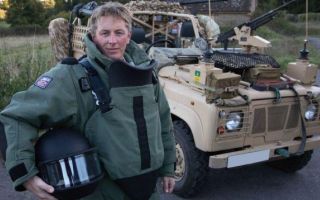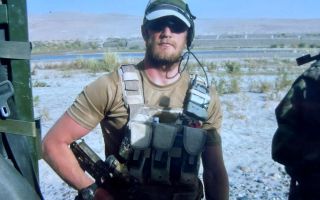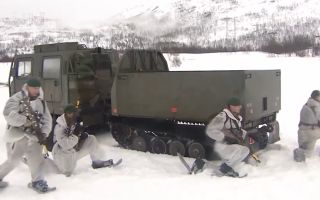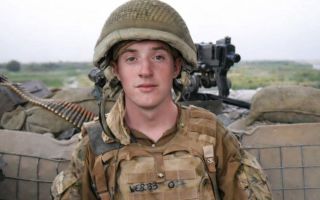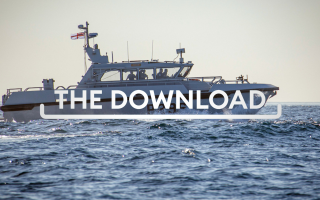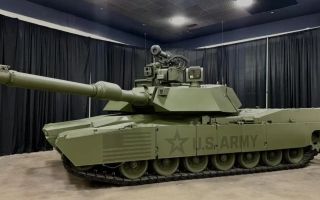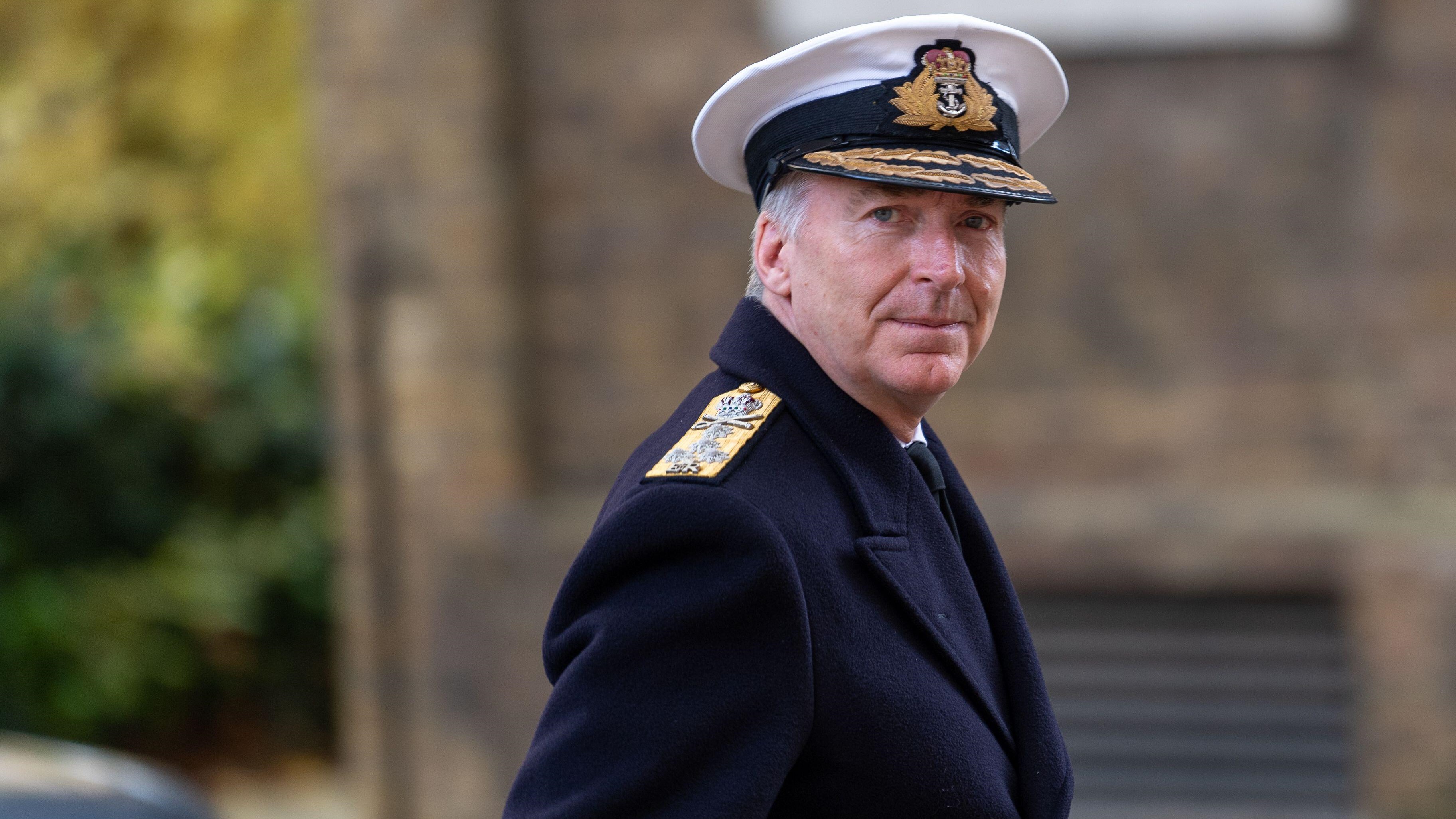
'Russia is losing and the free world is winning', head of UK Armed Forces says

The head of Britain's Armed Forces has warned that "these are extraordinarily dangerous times", with tensions rising between the West and Russia, Iran, North Korea and China.
Admiral Sir Tony Radakin has said that the world is seeing a "generational struggle for the future of the global order".
In a speech at the Royal United Services Institute (RUSI) defence and security think tank in London on Wednesday evening, he said: "As 2022 draws to a close, we have a world in which four separate geopolitical crises are unfolding in parallel."
"Whether it's (Vladimir) Putin's sense of impunity, Iran's meddlesome and destabilising behaviour, North Korea's outright belligerence or an increasingly authoritarian China... none of these challenges exist in isolation," Admiral Radakin said.
"Each is connected. Each represents a test of the rules which have guaranteed global security and enabled the spread of prosperity and opportunity throughout our lifetimes. And, in aggregate, are extraordinary and profound."
"Russia is diminished on the world stage"
Despite the somewhat negative assessment, he said the UK and the West "can take confidence from the response".
In his bid to divide the world, the Russian president "has unintentionally assembled an extraordinary coalition of democracies against him", the head of Britain's Armed Forces said.
"The result is Russia is losing. And the world is winning.
"Russia has failed – and will continue to fail – in all its war aims. Russia is diminished on the world stage."
Britain should not "look the other way"
He also said Russia faces a "critical shortage of artillery munitions", meaning the ability of its forces to conduct successful offensive ground operations "is rapidly diminishing".
The Chief of the Defence Staff concluded: "The biggest lesson from the past year is to recognise that we are part of a generational struggle for the future of the global order."
He advised Britain not to "look the other way".
"We've seen what happens when countries look away. Authoritarians are emboldened. Rules get broken, economic turmoil and global insecurity follow. And we all pay the price."
Russia's predicament
Admiral Sir Tony examined Russia's predicament, concluding that "Nato is stronger".
"Not just in the response on its eastern flank and in the Atlantic and the hard power amassed. But in its sense of purpose. And that purpose is backed by money," Admiral Sir Tony Radakin stated.
He highlighted that 20 nations have "already agreed to increase their defence budgets" since 24 February.
This is on top of an extra £320bn of additional spending pledged by European members and Canada since the Nato Summit in Wales in 2014.
"This is all in contrast to the horror of the Russian army," Admiral Sir Tony Radakin said.
"About hundred thousand soldiers dead, injured or deserted. Whole battalion tactical groups destroyed. Some 4,500 armoured vehicles and 600 artillery systems destroyed or captured."
The head of the UK military added: "And it extends to the sea with 12 ships, including a capital ship, lost either at sea or alongside in a supposed safe port. And in the air, more than 70 helicopters, 60 aircraft and 150 drones destroyed.
"These are losses that will be felt for at least a decade.
"That is not to say that the coming year won't be difficult. It will be incredibly demanding of Ukraine, and for all of us.
"But just look at the maths. Russia seeks solace with Iran, North Korea and China. Ukraine turns to the extraordinary might of America and the world.
"How we will succeed"
The Chief of the Defence Staff reiterated how "incredibly proud" he is of the response to the events of the last year, "from our servicemen and women, regular and reserve, but also our civil servants our diplomats, our industry partners, and our allies".
"This is how we will succeed," he added.
"By being confident in our values. By staying strong at home and in the world.
"And by leveraging the extraordinary strengths and opportunities this presents."
Admiral Radakin concluded his speech by saying "these are worrying times" but he remains "optimistic and confident about our security".
"We should take succour in the way we and international partners have responded to the challenges," he added.
"And we should heed the catastrophe that the Russian leadership has landed itself in."

